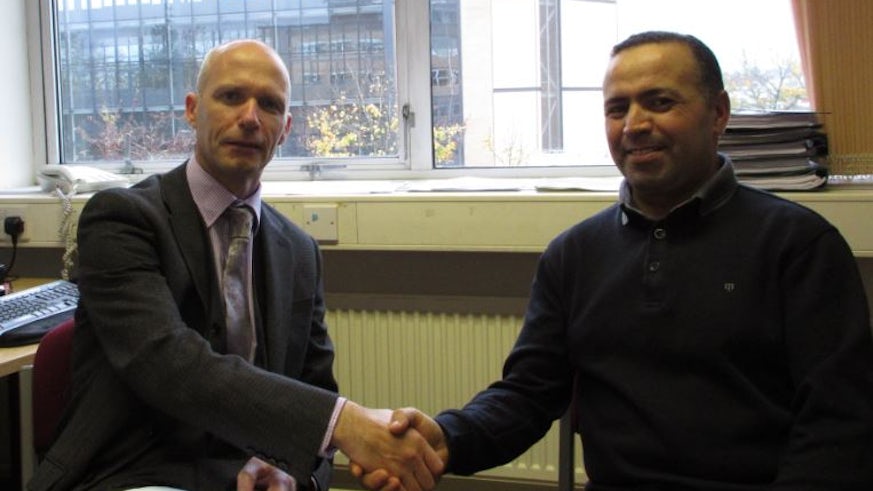Lessons and learnings for minority language development
16 November 2015

Language planning and policy academics at Cardiff University’s School of Welsh this week welcomed a researcher from the Moroccan Royal Institute of Amazigh Culture.
Dr Khalid Ansar, a language researcher at the Royal Institute, is in Wales to further his understanding of the Welsh experience of language planning and development to inform his work in Morocco.
Amazigh or Berber (a collection of similar and closely related languages and dialects) is indigenous to North Africa and spoken in large numbers in Morocco and Algeria, and to a lesser degree in countries such as Libya and Tunisia. Amazigh became an official language of Morocco in 2011.
There has been a movement amongst Amazigh associations to unite and coalesce Amazigh varieties under one standardised language, under the name of standard Amazigh. Ever since the creation of The Royal Institute of Amazigh Culture, the researchers of the Institute have played a significant role in the standardisation process, with a focus on developing and disseminating the language in three distinct domains – Media, Education, and Administration.
Dr Ansar said: “We are working to revitalise and develop language and standardise Amazigh in social and cultural life. It is quite a task, requiring the formation of new words and lexicons alongside recording and mapping the existing language. We are keen to understand how Wales and the Welsh language has approached development and planning and I am pleased to meet with the academics here at Cardiff University’s School of Welsh.”
Professor Diarmait Mac Giolla Chriost, from the School of Welsh’s Language, Policy and Planning Research Unit, said: “We welcome Dr Ansar to the School and are eager to compare notes on our experiences of minority language matters. Morocco and Amazigh present a very interesting case study of the intricacies and challenges of language planning and policy. Strikingly different in many ways, there is however an affinity with the Welsh experience of language promotion, preservation and evolution.”
Cardiff University’s School of Welsh has a long history of excellence in language planning, policy and acquisition research. The Royal Institute of Amazigh Culture was established in 2001 under a royal decree of King Mohammed VI. The Royal Institute’s work includes maintaining and developing the Berber language, reinforcing Berber culture in media and wider society and integrating the language in to the Moroccan educational system as well as the media.